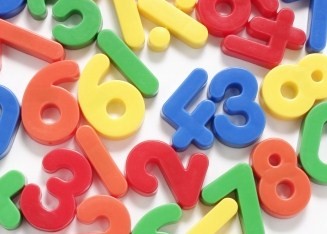
"Math Matters, Even for Little Kids," a commentary appearing in the March 28, 2012, issue of Education Week, highlights findings from research indicating that early math skills are a better predictor of children's later academic success than early reading skills. West Coast experts in mathematics education Deborah Stipek (Stanford), Alan Schoenfeld (UC-Berkeley), and Deanna Gomby (Heising-Simons Foundation), begin their discussion with the statement:
"Everyone knows that children who are not reading at grade level by 3rd grade are fated to struggle academically throughout school. Concerns about early literacy skills are justified because reading skills at kindergarten entry predict later academic achievement. But guess what predicts later academic success better than early reading? Early math skills."
The research being cited was conducted in a widely cited 2007 study by Greg Duncan, University of California, Irvine. In an article titled "School Readiness and Later Achievement," (http://www.policyforchildren.org/pdf/School_Readiness_Study.pdf), Duncan and his colleagues found that in a comparison of math, literacy, and social-emotional skills at kindergarten entry, "early math concepts, such as knowledge of numbers and ordinality, were the most powerful predictors of later learning." Later studies (such as one conducted in Canada in 2010) reinforce these findings.
A recent study of preschool classrooms conducted by Vanderbilt University education professor Dale Farran reports that only 2.5 percent of a typical preschool day is spent on intentional mathematics instruction. Farran found that increasing the amount of time children spend engaged in mathematics instruction and conversation to just 4 percent led to significant math gains.
Although the reason why early math skills is such a strong predictor of achievement is not yet understood, the authors assert that the importance of early access to mathematics is clear; with the nations increased focus on academic achievement (both in language arts and mathematics as prescribed by the Common Core State Standards), there is no time like the present to enhance children's early mathematical experiences in order to better prepare them for the academic expectations they will encounter.
A full copy of the commentary can be purchased (or viewed by Education Week subscribers) at http://www.edweek.org/ew/articles/2012/03/28/26stipek.h31.html?r=7326.
More details at: http://tinyurl.com/c8mwtyz